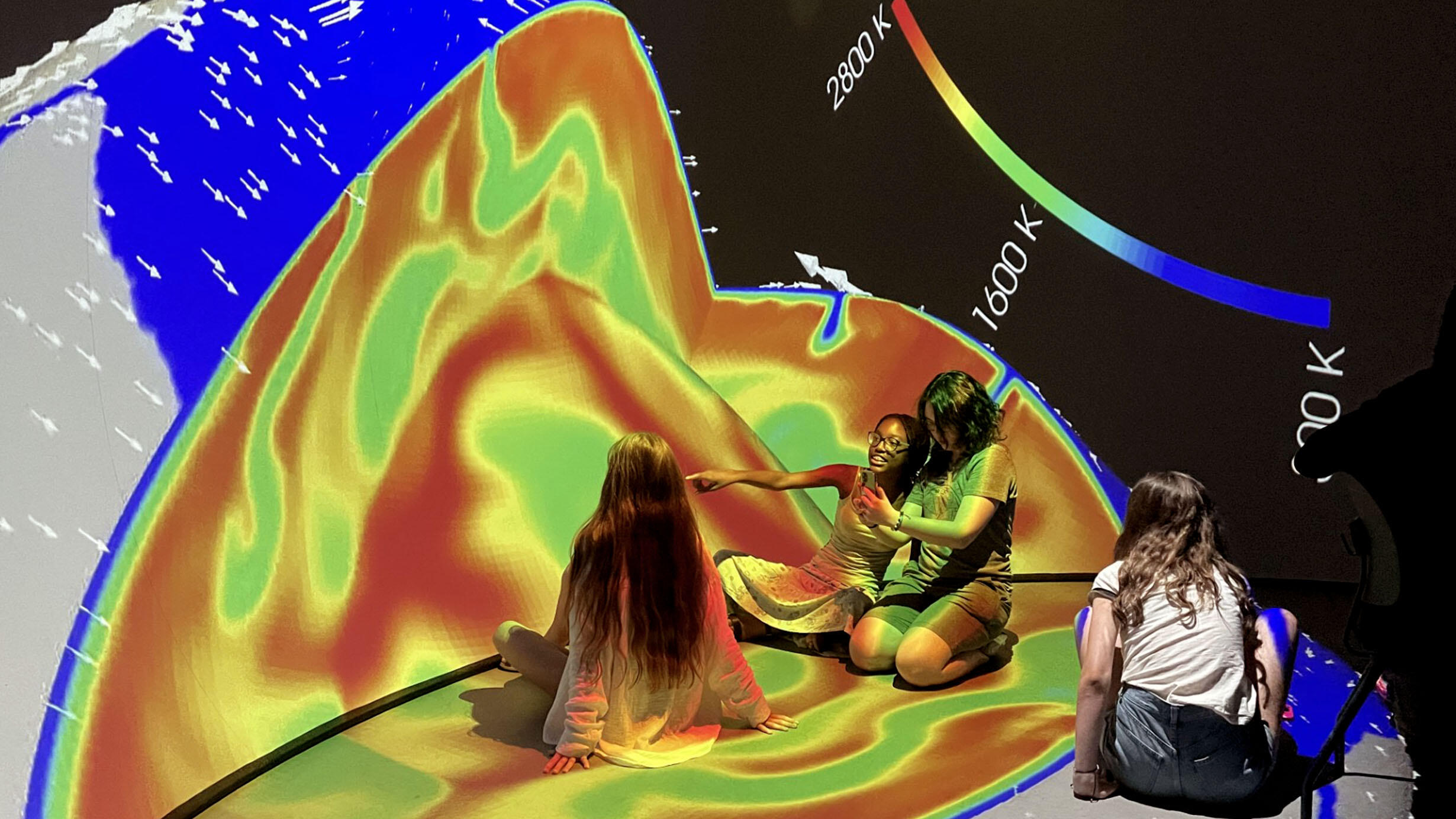Science Alliance: Middle School Program
Part of Children & Families
Summer 2024
Class:
Summer Science Academy
Each week students will engage in a new theme covering a range of scientific topics, including evolution, ecology, anthropology, astronomy, and Earth and planetary sciences. Students will explore the unique places where science happens by visiting the Museum’s collections and labs and meeting scientists. This academy will nurture students’ innate curiosity while allowing them to generate new questions about the natural world.
Program Dates: Monday, July 8–Friday, August 9
Program Time: 9 am–4 pm Monday–Friday
Program Cost: $5,000
Click Here to Purchase
Registration Open
Age Group:
Grade 6, Grade 7, Grade 8, Middle School, Youth
Dates & Times:
July 8–August 9, 2024.
9am-4pm
Grade 6, Grade 7, Grade 8, Middle School, Youth
July 8–August 9, 2024
9am-4pm
Fall 2024 Sessions
Class:
Digital Universe Flight School
Have you ever dreamed of flying through the cosmos? In Digital Universe Flight School, students will learn to operate OpenSpace—an interactive data visualization software, funded in part by NASA, which allows users to explore the entire known universe. Students will travel through space and time to create their own astronomy shows, which they will present in the Rose Center’s Hayden Planetarium. Students will engage with various halls throughout the Museum, with a focus on astrophysics and curatorial design. They will obtain a behind-the-scenes glimpse of what happens at the Museum and interact with Museum scientists and creators.
Thursdays: 10/10, 10/17, 10/24, 11/7, 11/14, 11/21, 12/5, 12/12
Full Fee Seats Sold Out/ Tuition Assistance Seats Filled
Cost: $1,000
Age Group:
Grade 6, Grade 7, Grade 8
Dates & Times:
Thursdays, 4:30–6:30 pm.
Grade 6, Grade 7, Grade 8
Thursdays, 4:30–6:30 pm
Class:
"Tiny Life" (aka Microbiology)
Microbiology is the study of tiny organisms—those that are too small to be seen with the naked eye. You’ve heard about these microorganisms before: bacteria, viruses, fungi, protozoa, and algae. Now learn how to study them, their central importance to all of life on this Earth, and how microbiology is used to make medicines, improve food safety, protect the environment, or even find ways to grow crops better. Our young explorers will learn how to create microbial communities, sample and culture microbial strains, and use microscopes to examine and study microbes.
Thursdays: 10/10, 10/17, 10/24, 11/7, 11/14, 11/21, 12/5, 12/12
Click Here to Purchase
Cost: $1,000
Age Group:
Grade 6, Grade 7, Grade 8
Dates & Times:
Thursdays, 4:30–6:30 pm.
Grade 6, Grade 7, Grade 8
Thursdays, 4:30–6:30 pm
Class:
Animal Behavior (Fridays)
How do ants farm fungus? Why do some birds “moonwalk”? Why do capuchin monkeys like to poke each other in the eye? Animals exhibit complex sets of behaviors. In this course, you will explore the ways that animals form sophisticated social structures, investigate their strategies for finding food and avoiding predators, and discover the lengths they will go to to attract mates and outcompete their rivals. Students will conduct observational field studies of animals in the wild and in captivity, interpret behavioral data like migration patterns and communication strategies, and meet with experts who work to understand the dynamic lives of the animals that coexist with us.
Fridays: 10/11, 10/18, 10/25, 11/8, 11/15, 11/22, 12/6, 12/13
Click Here to purchase / Tuition Assistance Seats Filled
Cost: $1000
Age Group:
Grade 7, Grade 6, Grade 8
Dates & Times:
Fridays, 4:30-6:30pm.
Grade 7, Grade 6, Grade 8
Fridays, 4:30-6:30pm
Class:
Maya Skies: Astronomy of the Ancient World
Throughout human history we have always looked to the sky, for navigation, for spiritual guidance, and for understanding our place in the universe. Examine the relationship between the Mayan civilization and the cosmos. Explore the social structure, belief systems, and daily life of Mesoamerica through the lens of archaeoastronomy. Investigate how celestial bodies affect a culture’s interpretation of time, mathematics, our calendrical system, and the way whole cities are designed. You will construct your own timekeeping device, experiment with alternative forms of mathematical calculation, and develop unique calendars.
Formerly known as: Mesoamerican Archaeoastronomy
Fridays: 10/11, 10/18, 10/25, 11/8, 11/15, 11/22, 12/6, 12/13
Click Here to Purchase
Cost: $1,000
Age Group:
Grade 6, Grade 7, Grade 8
Dates & Times:
Fridays, 4:30-6:30pm.
Grade 6, Grade 7, Grade 8
Fridays, 4:30-6:30pm
Class:
Animal Behavior (Saturdays)
How do ants farm fungus? Why do some birds “moonwalk”? Why do capuchin monkeys like to poke each other in the eye? Animals exhibit complex sets of behaviors. In this course, you will explore the ways that animals form sophisticated social structures, investigate their strategies for finding food and avoiding predators, and discover the lengths they will go to to attract mates and outcompete their rivals. Students will conduct observational field studies of animals in the wild and in captivity, interpret behavioral data like migration patterns and communication strategies, and meet with experts who work to understand the dynamic lives of the animals that coexist with us.
Saturdays: 10/19, 10/26, 11/2, and 11/16
Click Here to Purchase
Cost: $1000
Age Group:
Grade 7, Grade 6, Grade 8
Dates & Times:
Saturdays, 10am- 3pm.
Grade 7, Grade 6, Grade 8
Saturdays, 10am- 3pm
The American Museum of Natural History gratefully acknowledges Morgan Stanley for its sponsorship of youth initiatives.
Middle School Programming in the Gilder Center is proudly sponsored by the New York Life Foundation.
The Museum’s Education Collection is generously supported by the Anna-Maria and Stephen Kellen Foundation and Elysabeth Kleinhans.
